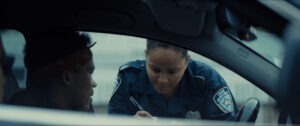
Experiencing a car accident can be frightening and nerve-wracking, regardless of its severity. After the initial shock and panic dissipate, you may find yourself tangled in the complexities of the aftermath. This blog post aims to guide you through the procedures to follow when no one gets a ticket after a car accident. Contact an Oklahoma car accident lawyer for legal advice related to your situation.
Understanding the Law: When and Why Might No One Get a Ticket?
Contrary to popular belief, the absence of a ticket doesn’t necessarily equate to the absence of fault. Different jurisdictions have different traffic laws and enforcement procedures. A law enforcement officer will typically issue a ticket if there is clear evidence that a traffic violation occurred and caused the accident, like speeding, running a red light, or reckless driving.
However, not all accidents result from an explicit traffic violation. In cases where the cause of the accident is unclear, when there’s a lack of physical evidence, or when the accident is minor and didn’t disrupt the peace, an officer might decide not to issue a ticket. It’s essential to know that this does not prevent you from seeking compensation for damages or injuries.
Our Team Is Here To Assist You Every Step Of The Way.
SPEAK TO AN ATTORNEY TODAYThe Importance of Documenting the Accident
Without a traffic citation, thorough accident documentation becomes even more critical. First, write down your account of the accident as soon as you can. Remember to include as many details as possible, such as the date and exact time of the accident, the location, weather, and road conditions, the sequence of events leading up to the collision, and any other relevant details. Your account should be as comprehensive as possible to provide a clear picture of the incident.
Next, use your phone or camera to take pictures of the accident scene. Capture multiple angles of your vehicle and any other vehicles involved, focusing on visible damage. Try to take wide shots that include the entire scene and close-ups of specific damages. Photos of the surrounding area, including road signs, skid marks, broken glass, and vehicle debris, can also be helpful. These visual pieces of evidence can support your version of events.
Collecting Essential Information: The More, The Better
Once the immediate concern for everyone’s safety has been addressed and the relevant authorities have been notified, it’s critical to focus on gathering information from all involved parties. While sometimes overlooked, this task is fundamental to any subsequent legal or insurance proceedings that may follow.
Personal and Insurance Information
The first set of data to collect should be the personal and insurance details of the other driver(s). If possible, this includes their full name and contact information, such as phone number, address, and email.
Equally important are their insurance details, specifically the policy number and the name of their insurance company. These pieces of information are instrumental in facilitating communication and ensuring that any claims or issues are directed to the right place.
Vehicle Details
Next, note the specifics of the other vehicle(s) involved. This should cover the make and model of the vehicle, the color, and, crucially, the license plate number. Detailed vehicle information can help establish the factual basis of the accident and assist in identifying the vehicle in potential disputes or if a hit-and-run is involved.
Driver’s License Number
Don’t forget to also obtain the driver’s license number of the other party. This serves as an additional form of identification and provides an extra layer of security to ensure you’re dealing with the correct individual in future interactions.
Witnesses
If there were any eyewitnesses to the accident, their contributions could be invaluable. Take the time to ask for their names and contact information. Witnesses can provide an impartial third-party perspective of the events leading up to the accident, which can be especially beneficial when the fault is contested or not immediately apparent. They can corroborate or dispute various accounts of the accident, often making their testimonies a crucial element of the case.
Reporting the Incident: To the Authorities and Insurance Companies
Even without a ticket issued at the scene, reporting the accident to local law enforcement remains important. The formal police report provides an official incident record, useful in later discussions or negotiations. When engaging with the police, it’s crucial to give an honest, accurate account of the accident and provide any gathered evidence and witness contacts.
In addition to law enforcement, it’s also vital to promptly inform your insurance company about the accident. Providing all the details, including those about the other driver and any evidence you’ve collected, is critical. This openness ensures you’ve presented a complete picture of the incident.
Maintaining a transparent and cooperative relationship with your insurer is pivotal in claims. With all the necessary information, your insurer can better advocate for your interests, ensuring a smoother claims process and a more satisfactory resolution.
Consulting a Legal Professional: Because Expertise Matters
Finding yourself in an accident with no ticket issued can be complex and daunting. In such a scenario, securing legal advice, particularly if you’re anxious about liability, your insurance claim, or any legal consequences, can be invaluable.
A lawyer proficient in motor vehicle accidents could be your key to navigating this situation. They can offer critical guidance, helping you understand the process and what steps to take next.
Remember, the primary goal is to safeguard your rights and interests. With expert advice, you can efficiently manage the accident’s aftermath, ensuring your interests are adequately protected.
Proactivity and Knowledge are Your Best Defense
Experiencing a car accident where no one gets a ticket can be confusing. Proactivity is key, starting with meticulously documenting the incident and gathering all necessary information. Prompt reporting of the event is also essential to this proactive approach.
In such situations, seeking professional advice is often a wise move. This can provide clarity and guidance, offering an efficient route through the potential complexities of the aftermath. An expert’s input can help you understand your rights and the next steps.
Despite the initial challenges, protecting your rights and interests is achievable with the right approach. You can navigate through the accident’s aftermath with confidence and efficiency by accessing the correct information and guidance. This challenging situation can be manageable with preparation and a clear understanding of the process. Contact BDIW Law for more information.








